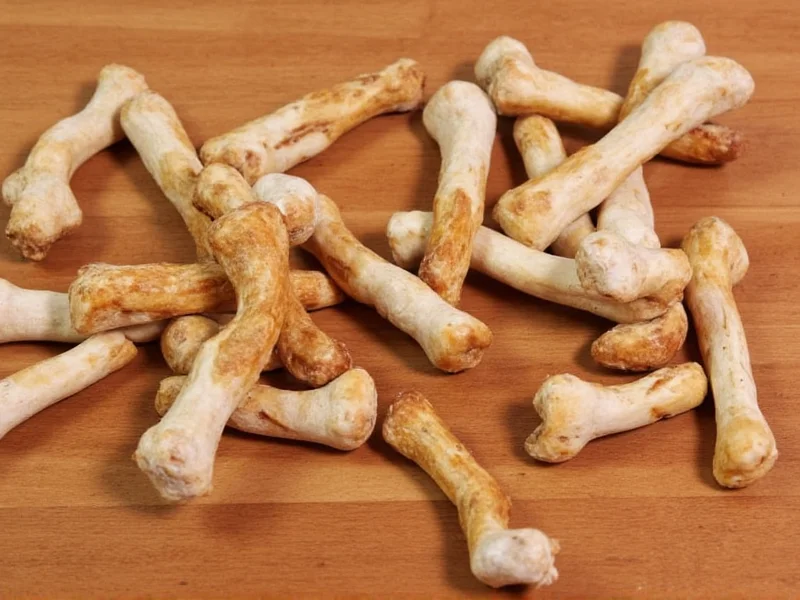When considering soup bones for dogs, pet owners need accurate information to protect their canine companions. While the idea of sharing kitchen leftovers seems natural, most veterinary professionals strongly advise against giving cooked soup bones to dogs due to significant health risks.
Understanding Soup Bones and Their Risks
Soup bones typically refer to the leftover bones from preparing broth or soup, which have been cooked for extended periods. This cooking process fundamentally changes the bone structure, making them dangerous for canine consumption.
Why Cooked Soup Bones Pose Serious Dangers
Cooking removes moisture and collagen from bones, causing them to become dry, brittle, and prone to splintering. When dogs chew on these weakened bones, they can:
- Create sharp fragments that puncture the mouth, throat, or digestive tract
- Cause choking if large pieces break off
- Lead to intestinal blockages requiring emergency surgery
- Result in severe internal bleeding from perforated organs
| Bone Type | Safety Rating | Primary Risks |
|---|---|---|
| Cooked soup bones | Unsafe | Splintering, choking, internal injuries |
| Raw meat bones | Conditionally safe | Only under supervision, proper selection |
| Weight-bearing bones | Unsafe | Too hard, cause tooth fractures |
| Commercial dental chews | Safer alternative | Designed specifically for canine safety |
Veterinary Consensus on Bones for Dogs
Major veterinary organizations including the American Veterinary Medical Association (AVMA) and the American Kennel Club (AKC) warn against feeding cooked bones to dogs. According to veterinary experts, are soup bones safe for dogs has a clear answer: no, especially when cooked.
Dr. Sarah Wooten, a certified veterinary specialist, explains: "Cooked bones are one of the most common causes of emergency veterinary visits related to foreign body obstructions. The risks far outweigh any potential benefits."
Potential Benefits of Appropriate Chewing
While soup bones themselves are dangerous, appropriate chewing does offer benefits for dogs:
- Dental health through plaque removal
- Mental stimulation and stress relief
- Jaw muscle development
- Natural instinct satisfaction
The key is providing safe alternatives to soup bones for dogs that deliver these benefits without the risks.
Safe Alternatives to Soup Bones
Instead of risking your dog's health with soup bones, consider these veterinarian-approved alternatives:
- Commercial dental chews specifically designed for canine safety
- Raw, meaty bones under strict supervision (never cooked)
- Rubber chew toys with dental ridges
- Vegetable-based chews like carrot sticks (for appropriate dogs)
- Specialized dental diets that clean teeth during regular eating
If You Choose Raw Bones: Essential Safety Guidelines
If your veterinarian approves raw bones for your dog, follow these critical safety measures:
- Always supervise your dog while chewing
- Select appropriately sized bones (larger than the dog's muzzle)
- Avoid weight-bearing bones (like femur bones) which are too hard
- Discard bones after 15-20 minutes of chewing
- Refrigerate raw bones between supervised sessions
- Limited to one or two sessions per week
- Never feed bones to dogs with certain health conditions
Recognizing Bone-Related Emergencies
Know these warning signs that require immediate veterinary attention:
- Excessive drooling
- Repeated gagging or retching
- Refusal to eat
- Lethargy or unusual quietness
- Visible distress or pain
- Visible bone fragments in vomit or stool
- Bloody stool or vomit
Homemade Bone Broth: A Safer Option
If you're interested in the nutritional benefits of bones without the risks, consider homemade bone broth for dogs. This involves simmering bones to extract nutrients into a liquid form, then removing all solid bone material before serving.
When prepared correctly, bone broth can provide:
- Gelatin for joint health
- Minerals like calcium and magnesium
- Collagen for skin and coat health
- Easy digestion compared to solid bones
Always consult your veterinarian before introducing bone broth to your dog's diet, especially if they have kidney issues or other health concerns.
Final Recommendations
The question of are soup bones safe for dogs has a clear answer from veterinary professionals: cooked soup bones should never be given to dogs. The risks of internal injury, choking, and emergency surgery far outweigh any perceived benefits.
For dogs who enjoy chewing, numerous safer alternatives exist that provide dental benefits and mental stimulation without endangering your pet's health. Always consult with your veterinarian to determine the best options for your individual dog based on their size, breed, age, and health status.











 浙公网安备
33010002000092号
浙公网安备
33010002000092号 浙B2-20120091-4
浙B2-20120091-4